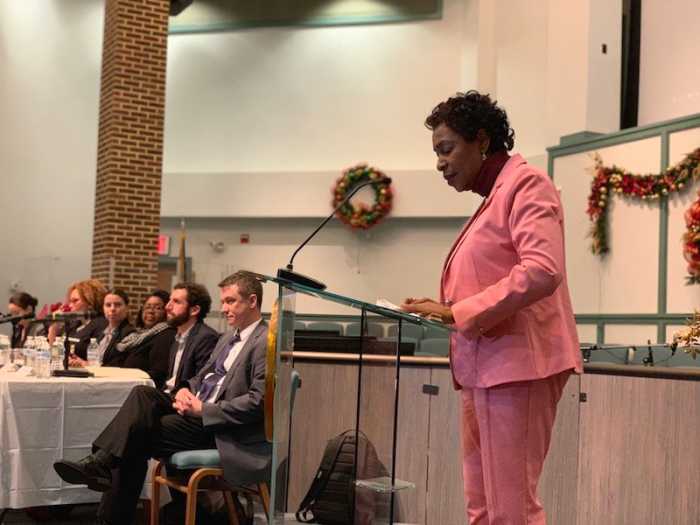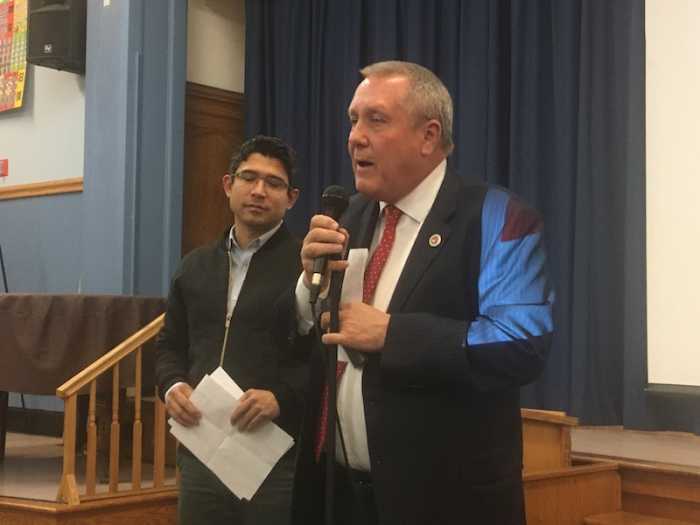A bipartisan bill recently introduced on Capitol Hill last month could provide a much-needed boost for immigrants looking to secure a green card and find a job in America.
The Equal Access to Green Cards for Legal Employment Act (EAGLE Act) was introduced on June 1 in the House of Representatives by Rep. Zoe Lofgren (D-CA) and Rep. John Curtis (R-UT).
The bill would remove the 7% per-country cap for employment-based immigrant visas and raise the limit on family-sponsored visas to 15%, with a nine-year transition period. It also strengthens the H-1B temporary visa program and provides an option for individuals who have been waiting in the immigrant visa backlog for two years to file a green card application, although the application cannot be approved until a visa becomes available.
Approximately 95% of employment-based immigrants currently live and work in the United States on temporary visas while waiting for a visa to become available. Some of these individuals remain in temporary status for many years, if not decades, because of the caps applied to their country of nationality.
Several members of Congress, mostly Democrats, have supported the bill, including Reps. Sean Patrick Maloney and Joseph Morelle of New York (NY), Rep. Karen Bass of California (CA), Rep. Filemon Vela of Texas (TX), and Rep. Raja Krishnamoorthi of Illinois (IL).
Two Democrats from New York City, U.S. Reps. Jerry Nadler (Manhattan, Brooklyn) and Carolyn Maloney (Manhattan, Queens, Brooklyn) were also co-sponsors of the bill. Neither provided a comment at post time.
Lofgren (D-CA) emphasized the fact that our immigration system is severely broken, highlighting the results of these current limits.
“A person from a large-population country with extraordinary qualifications who could contribute greatly to our economy and create jobs waits behind a person with lesser qualifications from a smaller country. It makes no sense. Because of this, we are now seeing recruiters from outside America luring those with the highest skills away from the U.S. That hurts our economy,” said Lofgren.
“The bipartisan EAGLE Act moves our country toward a system that de-emphasizes birthplace and better serves America. Simply put, it will allow U.S. companies to focus on what they do best – hiring smart people to create products and services, which creates jobs in our districts,” she added.
“The 2020 census showed that Utah has the fastest-growing state in the nation—in no small part due to the major growth and innovation in the technology sector, bringing thousands of new jobs to the state. At the same time, Utah is tied for the lowest unemployment rate in the country, leaving many companies to rely on foreign workers and navigate our complicated immigration system when there is a shortage of American’s seeking these positions,” said Curtis.
“The bipartisan EAGLE Act will create a more fair employment-based visa system by eliminating per-country limitations and creating a first-come, first-served system focused on merit instead of country of origin, making it easier for Utah’s businesses to expand and compete globally,” Curtis added.
Other Republican representatives supported the bill as well, including Reps. Don Bacon of Nebraska (NE), Bill Johnson of Ohio (OH), Brian K. Fitzpatrick of Pennsylvania (PA), Tom Emmer and Pete Stauber of Minnesota (MN), and Larry Bucshon of Indiana (IN).
“I support legal immigration reforms that expand higher-skilled immigrants entering our country,” Bacon said. “For example, there’s a huge 20-year plus backlog for folks trying to enter from India. Our country will benefit with access to higher skilled and trained immigrants who are willing to contribute to America’s workforce and economic development, especially for family-sponsored immigrants. A case in point from Omaha. Two of our best heart surgeons are immigrants from India and have made a huge impact on our community.”










